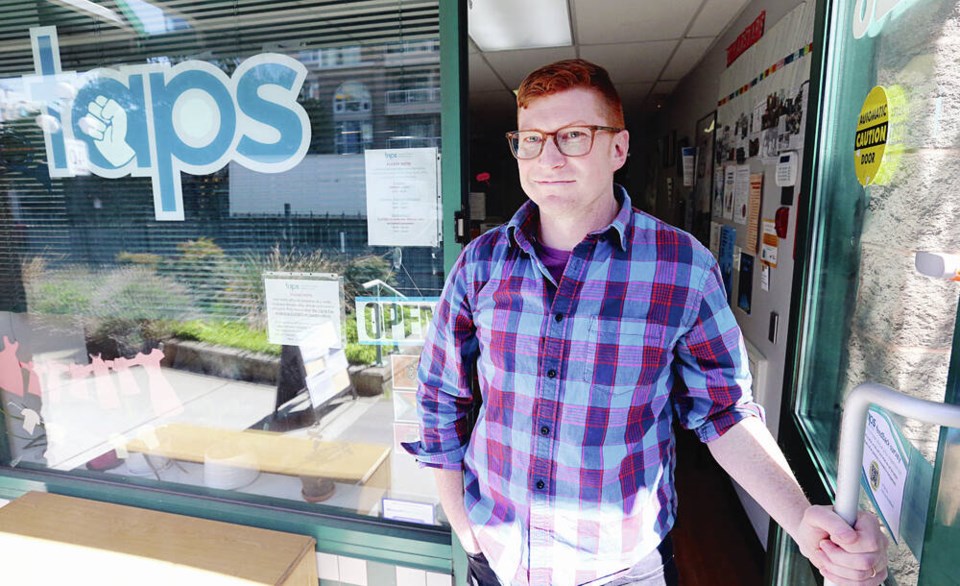Housing providers are split on recent changes to B.C.’s residential tenancy regulations that will allow wellness checks and no-guest policies in supportive housing.
Don McTavish, director of housing and shelters at Cool Aid, said the province made a “bold move” to change a regulation that will take rights away from residents, but the change will help housing staff keep vulnerable people safe by giving staff power to enter a unit to check on people and control who enters the housing facilities.
The province announced last week it would amend the Residential Tenancy Act to clearly define supportive housing and exempt it from sections of the act that prohibit guest policies and wellness checks. B.C. Housing is developing standards for conducting wellness checks in good faith and reasonable guest policies. The changes come into effect Feb. 28.
McTavish said staff have had to choose between following the regulations or trying to keep safe people who use drugs or have complex needs. Staff are attending multiple overdoses each week, he said, and they were going against the rules to check on people when they were worried, opening themselves to a potential dispute process with a tenant.
There were two incidents in the last two days in which staff performed wellness checks because they hadn’t seen residents recently, he said. Staff found the individuals unwell in their rooms and prevented possible fatal overdoses, McTavish said.
“I don’t want to look myself in the mirror the next day if they had passed away and I didn’t check,” he said.
The ability to control who has access to supportive housing facilities will also improve safety, he said. SWAT teams have been called to the building in response to people allowed in as guests, sometimes blowing doors open to remove people and discovering weapons and drug money, he said.
Julian Daly, CEO of Our Place Society, also welcomed the changes, saying they will keep residents safe and improve neighbourhood security.
Carolina Ibarra, CEO of Pacifica Housing, said supportive housing providers have been asking for changes for a long time and she supports the exemptions for wellness checks and guest policies.
However, Ibarra doesn’t believe the Residential Tenancy Act is the appropriate framework to manage supportive housing.
“It’s not an appropriate framework to deal with supportive housing because the RTA is really designed for ordinary tenants. And there’s nothing ordinary about supportive housing,” she said.
Residents of supportive housing have complex physical and mental health challenges, and housing providers need to be able to move people between facilities depending on the best fit for their needs, and to remove people quickly who pose a risk to others, she said.
A resident who isn’t able to cook for and feed themself won’t do well in a building that doesn’t cater three meals a day, but a transfer to a facility that provides daily meals will help meet that person’s needs, she said. Under the act, an individual would have to agree to end a tenancy and start a new one, something that might be beyond the capacity of some residents, Ibarra said.
Housing providers also need to be able to remove someone who is a danger to others without having to wait days or weeks for an eviction process, she said, and the changes mean providers may think twice before taking on people with the most complex needs.
Doug King, executive director at Together Against Poverty Society, said he was disappointed by the direction the province took.
“There’s a right here that exists and it really should only be infringed if it’s absolutely necessary,” he said.
The conflict he has seen around guests in supportive housing seems to be the result of a lack of resources. There aren’t enough staff to determine on an individual basis what guests are allowed and to keep a list of approved guests, he said.
He would have liked to see the province increase funding to give supportive housing sites the staffing they need to maintain residents’ rights, but a blanket ban on guests and allowing wellness checks appears to have been the easier route, he said.
“The message that sends to supportive housing tenants is that they’re not treated as individuals. You know, they’re treated as a group and the group as a whole can’t be trusted,” he said.
King said the changes also seem to condone the fact that providers have been flouting the rules prohibiting wellness checks and no-guest policies, showing that residents of supportive housing don’t have the same rights as other tenants.
>>> To comment on this article, write a letter to the editor: [email protected]




